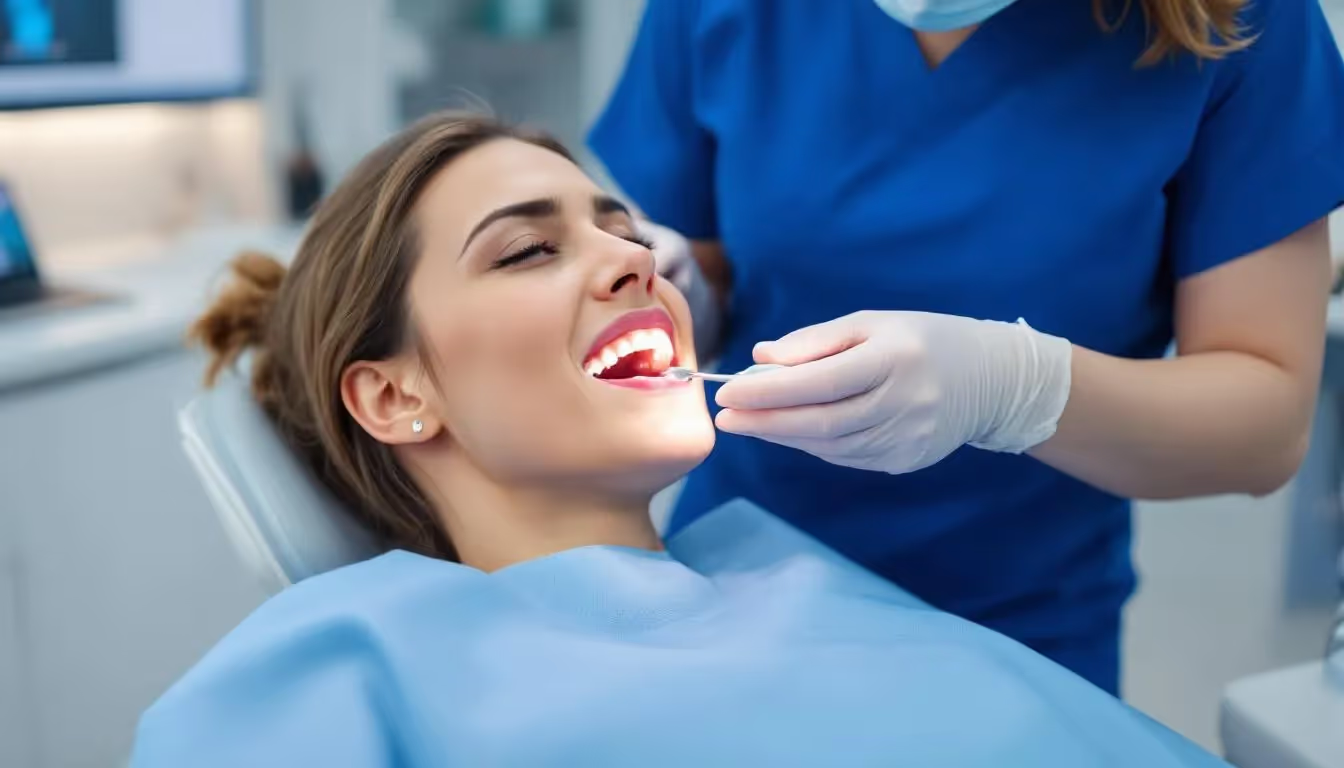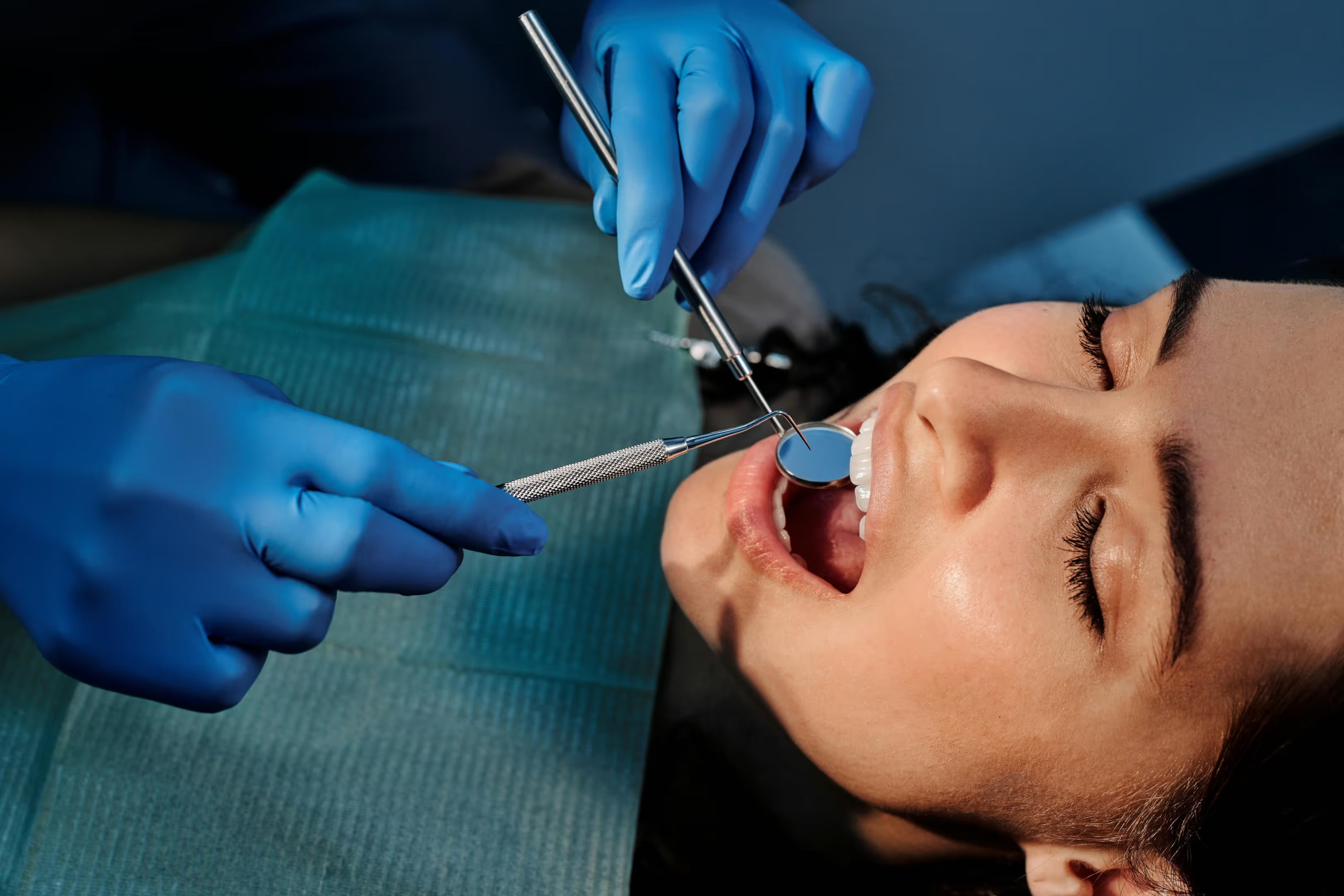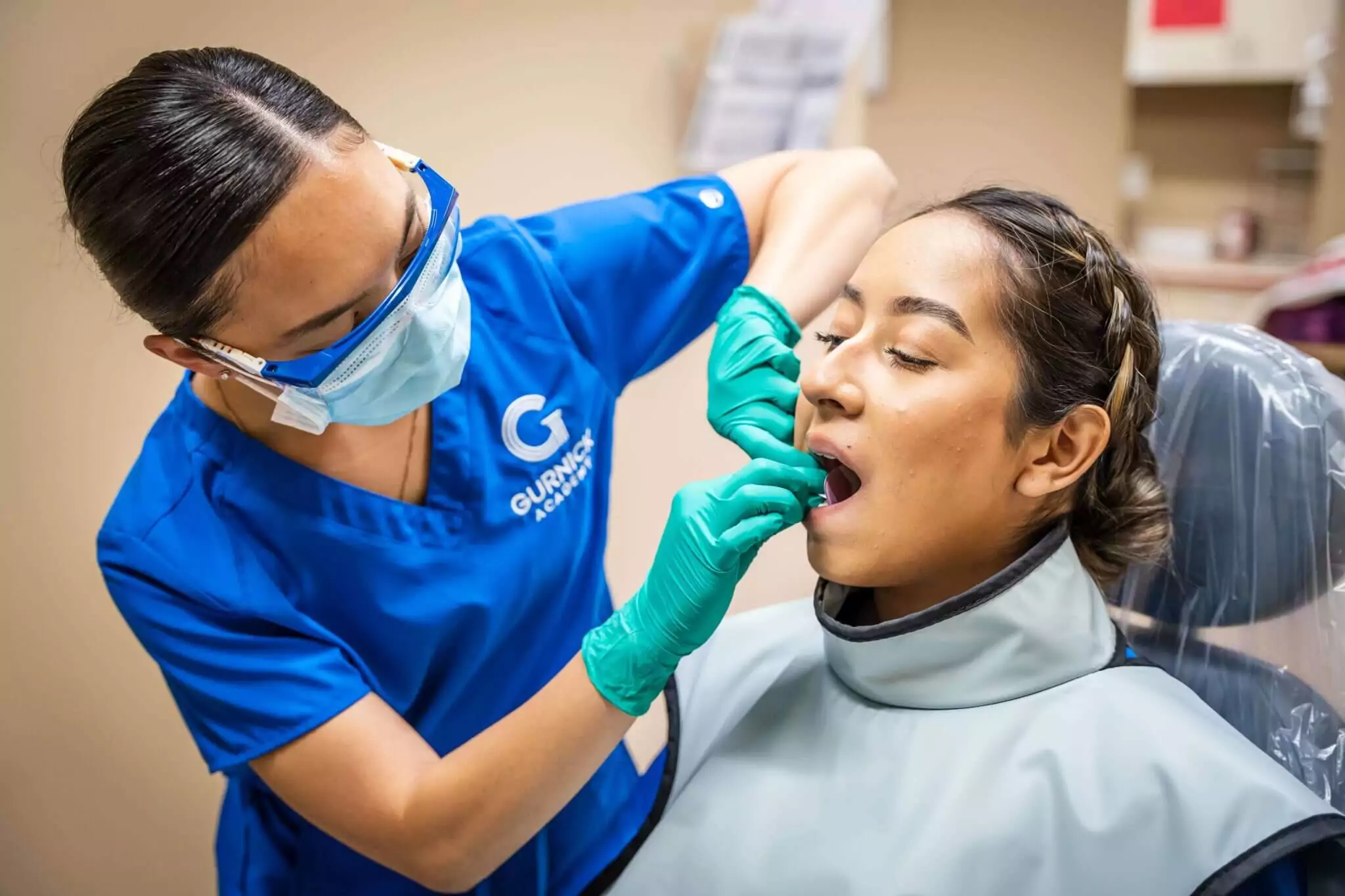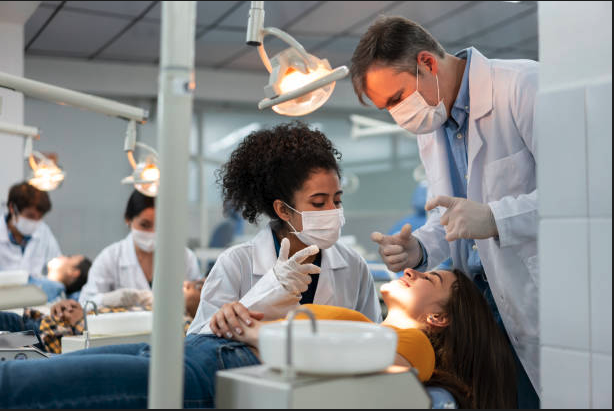Table of contents
Get Started with Kwikly
Get the latest updates, insights, and exclusive content delivered straight to your inbox.
So you’re wondering what RDH means in dentistry? It stands for Registered Dental Hygienist, and if you’re thinking about this career, you’re looking at one of the most important roles in dental care. RDHs are the ones cleaning teeth, teaching patients how to keep their mouths healthy, and stopping problems before they start.
If you’re interested in becoming an RDH, it’s important to understand the career path, including the steps you need to take, the skills required, and how this profession aligns with those passionate about health prevention and patient care.
Let’s break down what they actually do, how you get there, and why it might be the right fit for you.

Key Takeaways
- Registered Dental Hygienists (RDHs) are the backbone of preventive dental care - they’re focused on keeping your patients’ mouths healthy through cleanings, gum care, and education.
- If you want to become an RDH, you’ll need to finish an accredited program, pass the National Board Dental Hygiene Examination, and meet whatever your state requires for licensing.
- The demand for dental hygienists is growing fast, which means plenty of job opportunities and perks like flexible schedules and a competitive salary—some folks are making over $90,000 a year.
What Does RDH Stand For?
RDH is just short for Registered Dental Hygienist. If you’re thinking this sounds like some fancy title, it kind of is - but in a good way. These are licensed professionals who know their stuff when it comes to keeping teeth and gums healthy. The dental hygienist profession is recognized as a regulated healthcare field, requiring specific education, licensing, and adherence to professional standards. They’re not just helping out the dentist; they’re running their own show when it comes to preventive care.
Here’s the thing - registered dental hygienists are also teachers. They’re the ones showing patients how to brush properly and explaining why that sore spot in your mouth might be connected to something bigger. Strong communication skills are essential for dental hygienists when educating and interacting with patients, ensuring information is clearly understood and patient trust is built. Their work goes way beyond what happens in the dental chair.
Key Responsibilities of Registered Dental Hygienists
If you’re wondering what dental hygienists actually do all day, the answer is a lot. They’re not just cleaning teeth (though they do plenty of that). Dental hygienist duties include screening for oral diseases, performing dental x-rays, and creating patient treatment plans. They’re educators, preventive care specialists, and sometimes the person who catches problems before they get serious. Critical thinking is essential for dental hygienists as they assess oral health and plan effective care for each patient.
Let’s talk about the big three things dental hygienists handle every day: cleaning and scaling teeth, taking care of gum problems, and teaching patients how to keep their mouths healthy. These are the bread and butter of what makes this job matter, with patient care at the center of everything they do.
Teeth Cleaning and Scaling
You know that satisfying feeling after a good teeth cleaning? That’s dental hygienists doing what they do best. They’re removing all that plaque and tartar buildup that your toothbrush can’t handle. This isn’t just about making your teeth feel smooth - it’s about preventing gum disease and other problems down the road.
Clinical practice is essential for dental hygienists, as it allows them to provide direct patient care and maintain high standards in dental hygiene.
While they’re working, dental hygienists are also keeping track of what’s going on in your mouth. They document everything they see, which helps track changes over time and plan what needs to happen next. A dental hygienist is an expert in every patient's health history and preventive care.
Periodontal Care
This is where dental hygienists really shine - taking care of gum disease. They provide treatments that are all about keeping gums healthy and treating problems when they pop up. Dental hygienists play a key role in identifying and managing oral disease, including screening for and addressing periodontal disease during periodontal care. Through procedures like scaling and root planing, they can manage gum disease without surgery.
After these treatments, patients need ongoing care to keep things on track. Dental hygienists make sure patients understand why regular maintenance matters and what they need to do at home. They also assess and address each patient's individual oral health needs, ensuring that ongoing care is tailored to prevent future issues and maintain optimal oral health.
Patient Education
Here’s where dental hygienists become teachers. They’re showing patients the right way to brush and floss, explaining why regular checkups matter, and talking through preventive treatments that can save a lot of trouble later. Dental hygienists also educate patients about various oral health conditions and how to prevent them.
When patients really understand what they need to do, they take better care of their mouths. That means fewer problems, better outcomes, and healthier patients overall. Sometimes dental hygienists also use local anesthesia when needed to address different oral health issues.
Dental Hygiene and Oral Health
Dental hygiene is at the heart of maintaining good oral health, and dental hygienists are specially trained to spot and address oral diseases before they become serious problems. They are experts in identifying early signs of gum disease and periodontal disease, and they use advanced techniques like deep cleaning and root planing to remove plaque and bacteria from tooth and root surfaces. These periodontal maintenance procedures are crucial for stopping the progression of oral diseases and keeping patients’ mouths healthy.
Beyond treatment, dental hygienists are passionate about patient education. They teach patients the best ways to brush and floss, explain the importance of regular dental visits, and recommend preventive treatments such as fluoride applications and dental sealants. Dental hygienists also perform comprehensive oral health care assessments, including oral cancer screening, to catch any potential issues early. Their commitment to preventive care and education helps patients develop habits that support lifelong oral health.
Educational Path to Becoming a Dental Hygienist

If you’re thinking about becoming a dental hygienist, here’s what you’re looking at. You’ll need either an associate’s degree or a bachelor’s degree in dental hygiene from a program that’s properly accredited. An associate’s degree is typically the minimum requirement for licensure, while a bachelor’s degree can expand your career opportunities and allow for advanced roles.
A high school diploma is required before you can enter most dental hygiene programs.
These programs aren’t just classroom work—educational services in dental hygiene include both academic coursework and clinical training, so you’re ready for the real thing. Once you’re done with school, you’ll need to pass the National Board Dental Hygiene Examination and whatever clinical exams your state requires to get licensed.
Dental hygiene graduates must also meet specific credentialing and registration requirements before they can practice.
Certification and Licensing Requirements
Getting licensed as a registered dental hygienist means checking a few boxes:
- Finishing your associate’s or bachelor’s degree in dental hygiene from an accredited school
- Passing the National Board Dental Hygiene Examination
- Passing whatever clinical board exams your state requires to get your license.
- Meeting any specific regulations set by your state or region, as each area may have its own specific regulations governing dental hygienist practice.
Dental hygienists who move between states or countries may need additional training or assessment to meet local requirements.
Some states let dental hygienists work on their own within their training, while others want them working under a licensed dentist. Either way, all dental hygienists are providing important preventive care and keeping patients’ mouths healthy.
Employment Opportunities for Dental Hygienists
The job market for dental hygienists is looking really good right now. We’re talking about 11% growth by 2030, and that’s because more people need dental care and the population is getting older. More dental offices are using hygienists, and that’s where most dental hygienists work, collaborating with dentists to provide oral healthcare services in a clinical environment. Dental hygienists are essential healthcare professionals within the broader health system, playing a key role in diagnosis, prevention, and patient education. There are just more people who need care, and the variety of services performed by dental hygienists can vary depending on the work setting and state regulations.
You can work in all kinds of places - private dental offices, public health clinics, hospitals, or even schools. Dental hygienists may also work in nursing homes, providing care to residents in long-term care facilities. There are also opportunities in community health programs and corporate jobs like sales or research in the dental field.
Benefits of a Career as an RDH
A dental hygienist career comes with some real perks. You'll get job satisfaction from helping people stay healthy and preventing problems before they start. The pay is solid too - we're talking about potential earnings over $90,000 a year.
Flexibility is huge. You can work part-time, full-time, or even just weekends if that's what works for your life. There are also chances to start your own consulting business or practice management company if you're feeling entrepreneurial.
The Difference Between Dental Hygienists and Dentists
While both dental hygienists and dentists work in oral health, their jobs are pretty different:
- Dental hygienists usually need an associate’s degree.
- Dentists need a bachelor’s degree plus four more years in dental school.
- Dental hygienists focus on keeping problems from happening.
- Dentists diagnose and treat complex problems.
A dental assistant supports both the dentist and dental hygienist during patient exams and procedures, helping with tasks such as preparing instruments and assisting during cleanings and other dental treatments. Dental hygienists are responsible for oral health screening, disease detection, dental radiology, and patient education, while dental assistants focus more on clinical support and patient preparation.
Dentists can do surgery and prescribe medications - things that dental hygienists can’t do. This difference in training and responsibilities also shows up in their paychecks, with dentists earning more because of their advanced training and what they’re responsible for.
Advanced Roles and Specializations
If you want to take your dental hygienist career further, there are specializations you can get into. Advanced roles often require advanced education, such as graduate-level coursework or specific certification programs:
- Periodontics
- Orthodontics
- Endodontics
- Prosthodontics
- Oral and maxillofacial surgery
- Dental therapists: Dental therapists are advanced dental care providers with expanded scopes of practice, similar to physician assistants in medicine, and require specialized training and regulation.
Some dental hygienists also pursue alternative practice models, working independently in non-traditional settings like community health clinics, residential facilities, or public health programs.
These specializations let you focus on specific areas of dental care, which can make your career more interesting and improve patient outcomes. You’ll usually need additional education and training to get into these specialized roles.
The Role of Technology in Dental Hygiene Practice
Technology is changing how dental hygienists work, and it's pretty exciting. Artificial intelligence is helping with diagnostics and treatment planning by looking at huge amounts of data. Teledentistry lets dental hygienists do virtual consultations and education, which is great for people in remote areas or places that don't have enough dental care.
3D printing is also making a big difference, letting dental offices make custom appliances and models faster and more accurately. All this technology is making dental hygiene services better and more efficient.
Direct Access to Care
Direct access to care is changing the way patients receive dental hygiene services. In this model, patients can see a dental hygienist for preventive dental care and oral health assessments without needing a referral from a dentist. This approach allows dental hygienists to work more independently, making it easier and faster for patients to get the care they need to maintain healthy teeth and gums.
Dental hygienists play a major role in this system by providing essential services such as periodontal treatment and oral cancer screening directly to patients. In some regions, dental hygienists can even operate their own clinics, offering a full range of dental hygiene services without direct supervision from a dentist. This not only increases access to care, especially in underserved communities, but also highlights the expertise and importance of dental hygienists in promoting oral health and preventing disease.
How Kwikly Supports Dental Hygienists
Kwikly is a dental staffing platform that's made for dental hygienists who want more control over their work. You can find full-time, part-time, or flexible positions at different dental practices, so you can work when it makes sense for your life.
Kwikly makes finding and managing shifts simple by:
- Offering competitive pay with same-day payouts through Kwikly Wallet
- Making sure dental offices can fill shifts when they need to, whether it's last-minute or planned ahead
- Keeping schedules running smoothly and cutting down on cancellations
Summary
Registered Dental Hygienists are essential for keeping people's mouths healthy. They do the cleaning and education that prevents bigger problems and helps patients take care of their oral health. Getting there means finishing an accredited program and passing the right exams.
The job market is strong, with lots of different opportunities and benefits like job satisfaction, good pay, and flexible hours. Advanced roles and new technology make the dental hygiene profession even more rewarding as a career choice.
Frequently Asked Questions
What does RDH stand for?
RDH stands for Registered Dental Hygienist - a licensed professional who provides preventive dental care and education.
Introduction to Dental Hygienists
Dental hygienists are licensed oral health professionals who are essential members of the dental care team. Working closely with dentists and other dental professionals, registered dental hygienists deliver a wide range of dental hygiene services that help patients achieve and maintain optimal oral health. Their expertise goes beyond routine cleanings—they conduct thorough oral health care assessments, perform periodontal treatment, and provide preventive dental care tailored to each patient’s needs.
To become a dental hygienist, individuals must complete an accredited dental hygiene program, which combines classroom learning with hands-on clinical experience. After successful completion, graduates must pass the National Board Dental Hygiene Examination to become registered dental hygienists. These professionals are trained to administer local anesthesia for certain procedures, perform detailed dental charting to track oral health changes, and offer oral hygiene instruction that empowers patients to care for their teeth and gums at home. By focusing on prevention and education, dental hygienists play a vital role in supporting the overall health and well-being of their patients.
What are the main responsibilities of a dental hygienist?
Dental hygienists mainly handle teeth cleaning, gum care, and teaching patients how to keep their mouths healthy. Their work is essential for overall dental health.
What education is required to become a dental hygienist?
You'll need to finish either an associate's or bachelor's degree in dental hygiene from an accredited program, then pass the required licensing exams.
What are the benefits of a career as a dental hygienist?
A dental hygienist career offers job satisfaction, competitive pay, flexible hours, and chances to start your own business. These benefits make it an appealing choice for people who want a rewarding career.
How does Kwikly support dental hygienists?
Kwikly helps dental hygienists by providing on-demand staffing that gives them access to flexible job opportunities and same-day pay through the Kwikly Wallet. This helps with work-life balance and financial flexibility.








